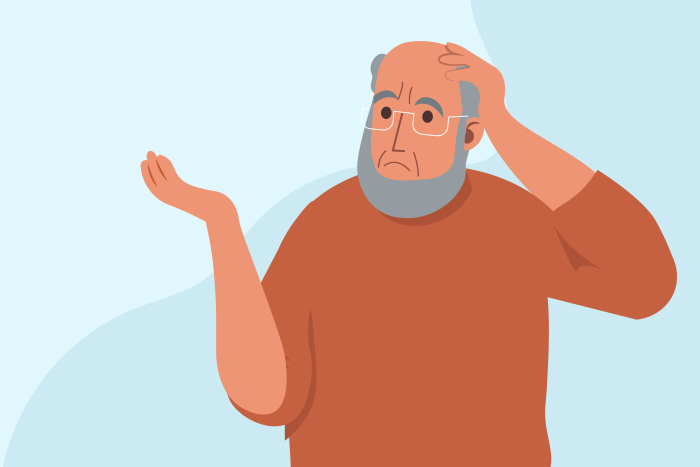High Blood Pressure: The Silent Killer
High blood pressure is often called the "silent killer" because it typically has no symptoms. Many people with high blood pressure feel perfectly fine, which can make it easy to ignore. However, uncontrolled high blood pressure can lead to serious health complications, including heart disease, stroke, kidney damage, and more.
Since high blood pressure can go unnoticed for years, it’s important to understand how it affects your body and why regular monitoring is essential for maintaining good health.
How High Blood Pressure Damages the Body
Although you may not feel anything unusual, high blood pressure is constantly putting extra stress on your body. Over time, it can cause serious harm to your vital organs. Here’s how:
Heart Damage: High blood pressure forces your heart to work harder than normal, which can thicken the heart muscle and increase the risk of heart failure.
Brain Damage: Hypertension can weaken and narrow blood vessels in the brain, increasing the risk of stroke and cognitive decline.
Kidney Damage: The kidneys rely on steady blood flow to filter waste from the body. High blood pressure can damage the kidney arteries, leading to kidney disease or failure.
Vision Loss: Increased pressure in the blood vessels of the eyes can lead to vision problems or even blindness.
Aneurysms: Over time, high blood pressure can cause blood vessels to weaken and bulge, creating aneurysms that may rupture and become life-threatening.
Stroke, Heart Attack, and Other Risks
One of the biggest dangers of high blood pressure is its role in life-threatening events like strokes and heart attacks. When the arteries become narrowed or damaged, it makes it harder for blood to flow properly. This can lead to:
Stroke: If blood supply to the brain is blocked or a blood vessel bursts, a stroke can occur, potentially causing permanent brain damage or disability.
Heart Attack: Blocked arteries can stop blood flow to the heart, leading to a heart attack.
Heart Failure: The extra effort required to pump blood can cause the heart to weaken over time.
Dementia and Cognitive Decline: Reduced blood flow to the brain has been linked to memory loss and an increased risk of conditions like Alzheimer’s disease.
Early Warning Signs of Complications
While high blood pressure itself often has no symptoms, certain signs may indicate complications caused by hypertension. If you experience any of the following, seek medical attention immediately:
Severe headaches
Dizziness or confusion
Blurred vision
Chest pain
Shortness of breath
Numbness or weakness in the face, arms, or legs (especially on one side of the body)
Difficulty speaking or understanding speech
These symptoms may indicate a hypertensive crisis (a sudden, severe spike in blood pressure), stroke, or other serious condition that requires immediate medical care. Keeping a medical alert device nearby can help you get emergency assistance quickly if these symptoms strike.*
Why Regular Blood Pressure Monitoring is Essential
Because high blood pressure can be dangerous without any obvious signs, routine monitoring is key. Here are some simple steps you can take:
Doctor’s Office Check: Have your blood pressure checked during regular check-ups.
Home Blood Pressure Monitor: Many affordable and easy-to-use monitors are available for tracking your blood pressure at home.
Visit a Pharmacy: Many pharmacies offer free or low-cost blood pressure checks.
By keeping an eye on your numbers and making necessary lifestyle changes, you can help prevent complications before they start.
Protecting Yourself from High Blood Pressure Complications
The good news is that high blood pressure can often be managed with healthy habits and, when necessary, medication. To lower your risk of complications, try the following:
Eat a Heart-Healthy Diet: Reduce sodium, eat plenty of fruits and vegetables, and choose whole grains and lean proteins. Learn more: Eating for a Healthy Heart.
Stay Active: Regular physical activity, such as walking, can help lower blood pressure.
Limit Alcohol and Avoid Smoking: Both can raise blood pressure and increase the risk of heart disease.
Manage Stress: Practicing relaxation techniques like deep breathing, meditation, or engaging in hobbies can help.
Take Medications as Prescribed: If your doctor prescribes medication, take it as directed to keep your blood pressure under control.
Take Control of Your Health Today
You may not be able to feel high blood pressure, but its impact on your health is very real. The good news? You have the power to manage it. Regular check-ups, home monitoring, and small lifestyle changes can go a long way in protecting your heart, brain, and overall well-being.
Don’t wait for symptoms—take control today. Schedule a blood pressure check, make heart-healthy choices, and talk to your doctor about steps you can take to stay healthy for years to come. Your future self will thank you!
Sources:
American Heart Association: Health Threats from High Blood Pressure
Centers for Disease Control & Prevention: High Blood Pressure
Mayo Clinic: High Blood Pressure
*Disclaimer: Healthcare Select may earn a commission if you purchase a product or service through links to our partners. This comes at no extra cost to you.

